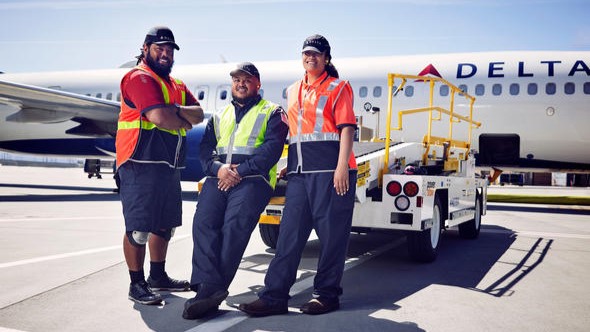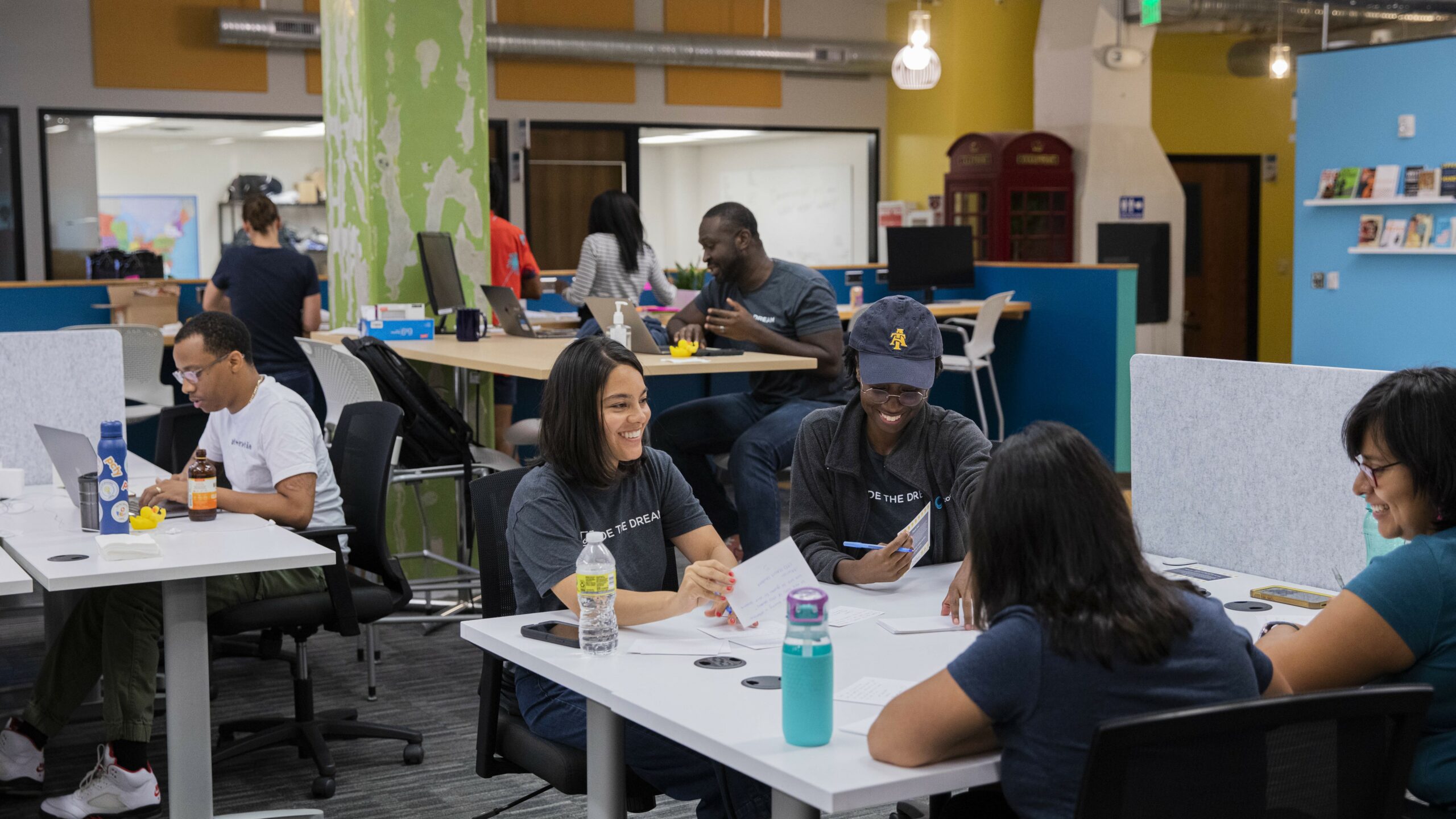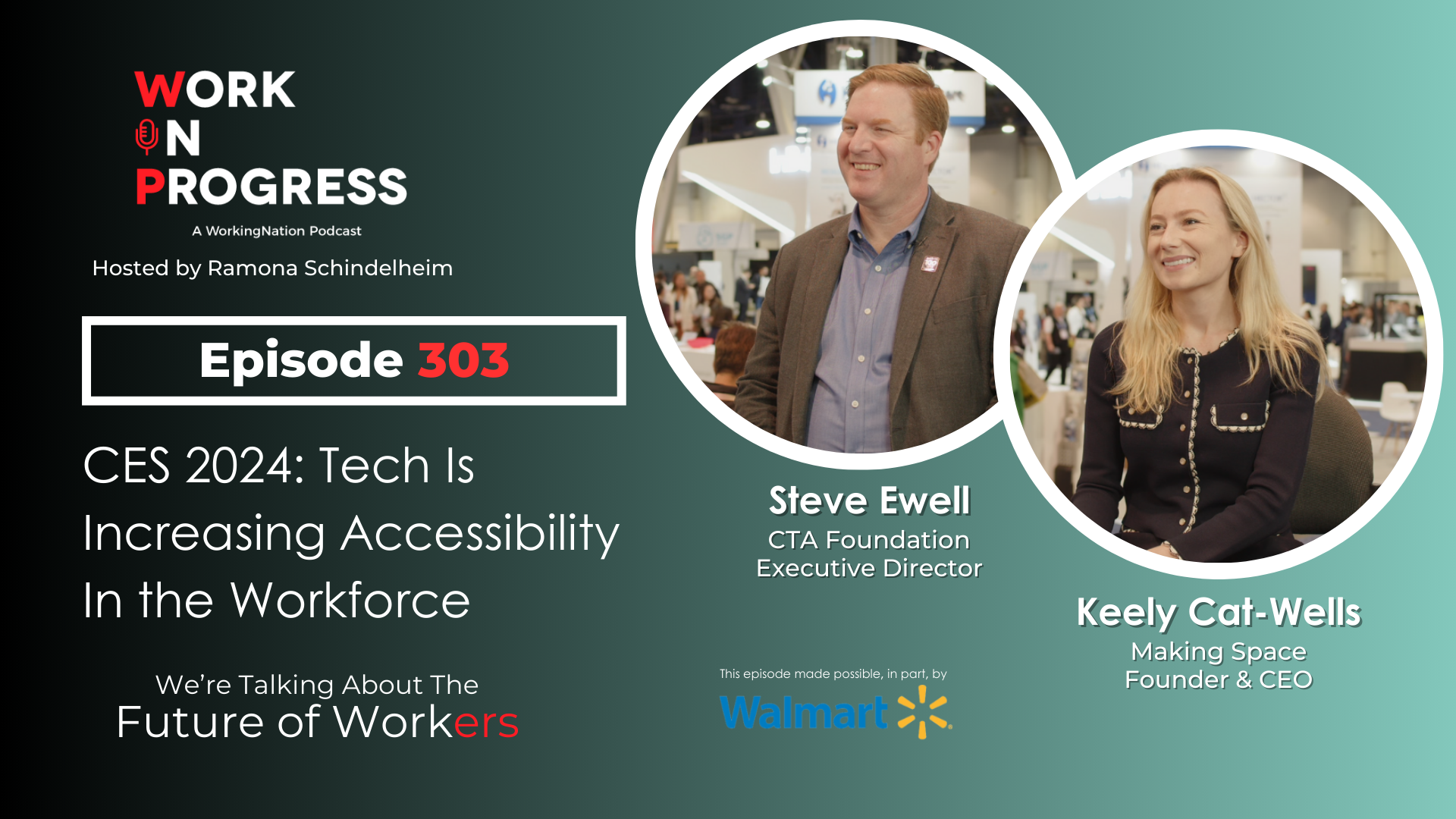
Now in its 18th year, the Aspen Ideas Festival is the Aspen Institute’s signature summer public event. More than 300 leaders and innovators gathered to engage in deep and inquisitive discussion of the issues that shape our lives and challenge our times, spanning politics, business, science, the arts, education, and more.
WorkingNation spent five days at the Festival, which wraps up today. We had the chance to catch up with many thought leaders and sit in on some remarkable sessions.
How is the way we work changing as we move into third year of a global pandemic? That was the premise of the discussion between IBM chairman and CEO Arvind Krishna and CNBC anchor Sara Eisen that we caught early in the week.
Krishna said one of the biggest changes is that people are rethinking where they want to be in the workforce and what jobs they want to do. He said that there are shortages in all industries and higher wages are not necessarily enough to fill open jobs.
“I think most CEOs are used to the fact that if you go and put out enough money you can get enough workers,” he told Eisen. “(Airlines) can’t get enough people for baggage, even if the wage goes from $12 to $22. Even if they come in at $22, they are not willing to work overtime, or time-and-a-half, or on weekends. We are in a very different democratic environment.”
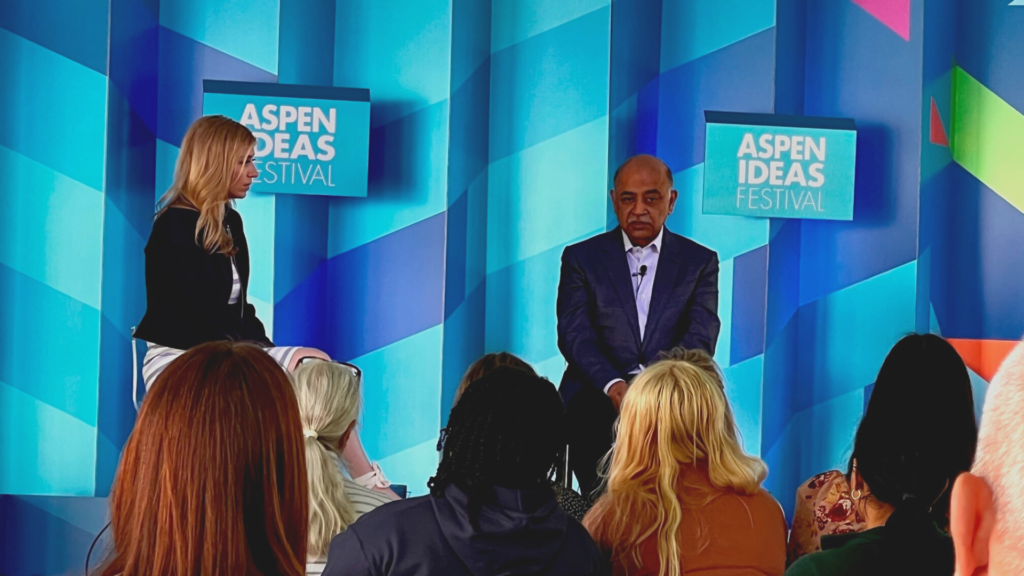
Krishna said there are millions of open jobs in the tech industry, partly because of competition and the lack of skilled workers. “Everybody need tech people. Walmart is now building some of its own cloud technologies. Why? Because it doesn’t want to be beholden to anyone. So, now Walmart is a ‘tech company.'”
Still, explained Krishna, IBM “holds its own” when it comes to attracting talent. “We tend to get people (into IBM) because some of the problems we get take a long time and are really hard. This kind of person we get is really talented and is really motivated to work with people as smart as themselves and as driven as themselves,” Krishna added that to attract this kind of talent IBM is willing to pay a “fair wage.”
You can watch the entire session below.
No Title
In the third year of a global pandemic, many American workers have a new relationship with their work. Whether they are navigating new working models, striving for better work-life balance, or feeling anxious about their financial resiliency amid rising inflation and economic uncertainty – work looks and feels different than it did in 2020.
Skills-Based Hiring and Earn-and-Learn Opportunities
After the session, I had a chance to speak with Krishna about IBM’s committment to hire more people without college degrees.
“When you have a demographic shortage, you’ve got to lean into people without college degrees. Only 30% of people in the U.S. have four-year degrees, so we now have over 50% of our job openings based on skills, not degrees,” Krishna explained. “We would like to push that up even higher because that we think will bring even more talent into the company.”
We also had the opportunity to discuss IBM’s internship program. “We’re committed to a thousand paid internships, that’s for disadvantaged communities,” he said. “We believe in paid internships as opposed to unpaid, because if they are unpaid they are sometimes overlooked” by the people doing the hiring later.
Krishna said the internships are being created with access in mind. “We’re helping people in a systemic way. Giving a kid who has no car an internship in upstate New York is not very useful. So, we give it to them on the train line. We are finding it makes a difference.”
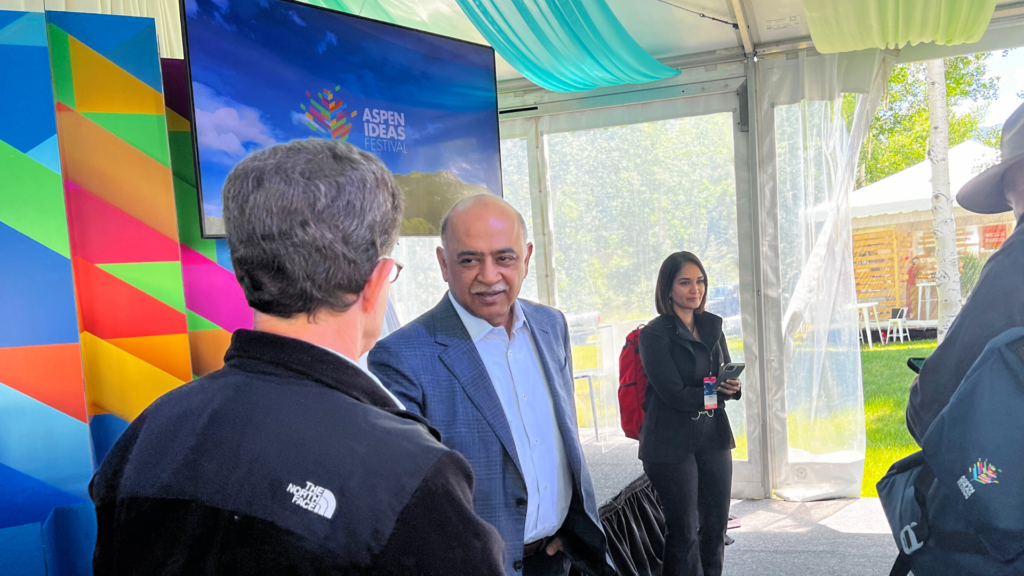
In Case You Missed It…
In May at JFF Horizons, I had a chance to speak with Lydia Logan, VP, global education and workforce development, IBM, about skills-based hiring and the need to find better ways to signal the skills a job seeker has.
WorkingNation Overheard: Lydia Logan on finding new ways to signal a worker’s skills and talents
“What we’re seeing now are more companies like (IBM) who see the need for talent, whether they’re large multinationals, smaller, or medium-sized companies. We all need top talent and we need to make sure that we can attract them and keep them,” says Lydia Logan, IBM’s VP of global education and workforce development.
And in March, at SXSW EDU, our president Jane Oates led a discussion on the learn-and-earn work model. You can watch it here.


